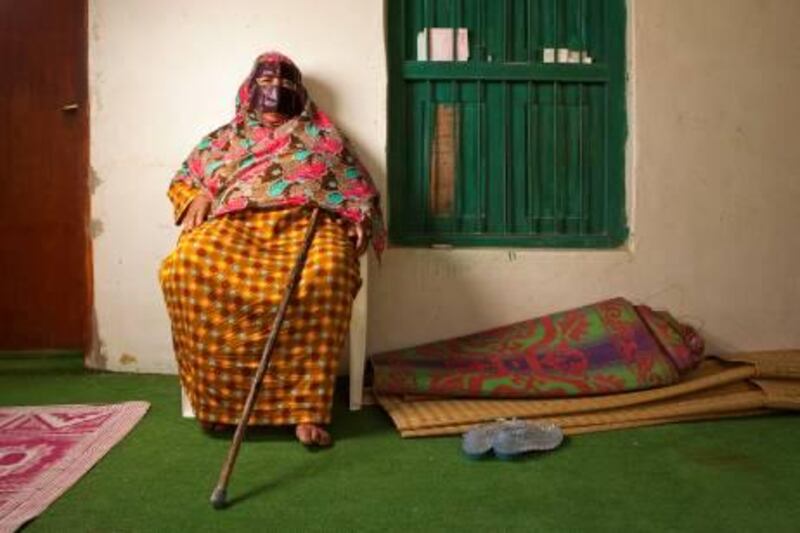RAS AL KHAIMAH // When Aisha Al Dabdoob sings during her healing rituals, she cries with a longing for her old life.
"Oh Lord, take these diseases from the whole body,
They want to be strong."
"If I can sing, so you will forget the pain," says Aisha, 74, who learnt the songs from her mother, a midwife and healer who served villages in the mountains.
The herbs and melodies, in the language of the Habus mountain tribe of RAK, are centuries old. For stomach aches, Aisha sings:
"Insomnia,
I don't sleep,
I count night by night and day by day,
Emotions across high waves, my lord, help me."
"Big and small, young and old come to me, but the young are more particular about the flavour," she says. "They don't like bitter medicines."
Under her bed, the medicine woman keeps a collection of aphrodisiacs and cures for all that ails: dried yahdeh flower blossoms for tea, crusted clusters of mukala sap, the green powder of zabad and black seeds of habbat al baraka.
"It's all from the mountain," says Aisha, who grew up in a hamlet of about 20 people.
"I don't know the name of the tree, only how it looks."
Some of her medicines, such as kheel powder, come from the Iranian market but most are gathered in the mountains after the rain. Her mother taught her where and when to harvest.
Aisha dispenses advice as she touches each jar: "Don't eat too much, just eat a little at bedtime with dates. To cure headaches mix it with water and put it on the forehead like an oil."
Her father's cousin, Afra Abdulla Al Dabdoob, peddles her wares from an old house of stone, known as Beit Ayoos (Grandmother's House), in the mountains.
Afra and Aisha's skills are valuable. Aisha remembers a man arriving on her family's doorstep after a three-day hike to save his wife from dying in childbirth.
She recalls how her mother delivered the baby boy who went on to become a big, strong man.
In the summer she works from her second home near the city, a crumbling concrete house where jars of herbal medicine are hidden in the cupboards and shelves of her majlis between bowls of dates, incense burners and photos of Habus tribesmen.
Now 67, Afra or Afroo as she is affectionately known, has legs that are scarred from where she placed heated iron spikes to her skin, a tradition she learnt from her grandmother.
"I can do it all by myself," she says, running her hand along the scar. "The other women wouldn't do it. After that I cannot feel pain."
For broken legs, she fashions a splint and applies a paste of milk and wadi leaves harvested directly after the rains.
Ever the traditionalist, Afroo measures hours by shadow and days by the moon. As the other women of the village celebrated Eid Al Adha, Afroo refused until a day later, insisting the moon was not right.
She is equally dismissive of modern medicine.
"The stuff made in the factory makes you feel good but after a few days under the air conditioning the pain returns," Afroo says.
"With my medicine the pain never returns."
She sees patients of all ages. She does not keep a list or their telephone numbers, instead waiting for them to call. All are welcome in her home.
Aisha's grandniece, Wadha, 28, has sought her help with numerous ailments but it was Aisha's remedy for hair loss - palm oil mixed with a local mountain plant known as yas - that brought admiration from Wadha's friends, who now visit the old woman themselves.
"You can use it four or five times a week," said Wadha of the tonic. "For the eyes she gives me [organic mountain] honey. It's good, 100 per cent, for the eye."
Wadha's brother is Afroo's caretaker. He goes to the mountain twice a day to feed her animals and often sleeps at her house.
When he bids her to rest and take her afternoon nap, she blows a raspberry at him.
"You old man," she teases. "I want to open my heart.
"I want to sing, I want to hear. I want to enjoy."






